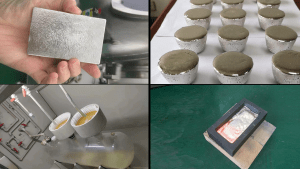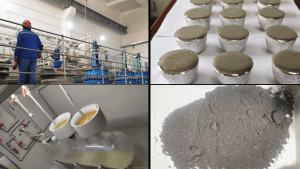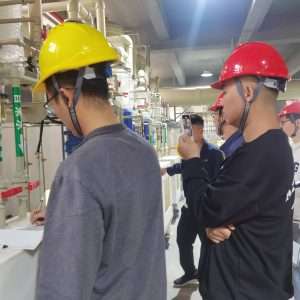Call us now:
Technical Protocol for Deactivated Catalyst Treatment
I. Comprehensive Process Flow
Stage 1: Catalyst Diagnosis & Preprocessing
Representative Sampling
Extract 0.5-2 kg catalyst samples from reactor zones using core drills or vacuum probes.
Preserve sample integrity via argon-blanketed containers to prevent oxidation.
Failure Mode Analysis
Physical Characterization: BET surface area (≤50 m²/g indicates sintering), SEM-EDS for coke/metal poisoning.
Chemical Profiling: XRD for phase changes, TPO/TGA for carbon deposition (10-30 wt% typical).
Stage 2: Regeneration & Metal Recovery
3. Thermal Pretreatment
Drying: 110°C for 4-8 hrs under N₂ purge to remove H₂O/VOCs.
Decoking: Controlled oxidation at 450-600°C (airflow 0.5 L/min·g) to eliminate 90-95% carbon.
Reductive Reactivation
H₂/N₂ (5%/95%) reduction at 300-500°C (ramp 5°C/min) to rest
ore active sites:
NiO+H2→Ni+H2ONiO+H2→Ni+H2O
Regains 85-92% initial activity for Co-/Ni-based catalysts.
Hydrometallurgical Extraction
Acid Leaching: 6M HCl at 80°C (solid/liquid 1:10) dissolves 95% Pt/Pd/Rh.
Selective Precipitation: Adjust pH to 2.5-3.0 with NH₃ to isolate PGMs.
Stage 3: Resource Valorization
6. Refining & Reuse
Solvent extraction (e.g., Cyanex 923) achieves 99.9% PGM purity.
Re-pelletization with γ-Al₂O₃ support for reactor reloading.
Residuals Management
Non-recoverable catalysts processed via:
Pyrometallurgy: Induction furnace (1,600°C) for slag/metal separation.
Stabilization: Cementitious encapsulation (EPA TCLP compliant).
II. Critical Enrichment
A. Pyrometallurgical Enrichment
Process: Arc melting (1,200-1,500°C) forms PGM-rich alloy (≥80% recovery).
Advantages:
Throughput: 10-50 tons/day
Tolerance: Handles mixed catalyst types
Limitations: High energy (800-1,200 kWh/ton), NOx/SO₂ emissions.
B. Hydrometallurgical Enrichment
Process:
Pressure Oxidative Leaching: H₂SO₄/O₂ at 150°C dissolves base metals.
Ion Exchange: Purolite S984 resin captures 99% PGMs.
Advantages:
Selectivity: Targets Pt/Pd/Rh at ppm levels.
Scalability: Modular plants (1-5 tons/day).
III. Process Selection Matrix
| Criteria | Pyrometallurgy | Hydrometallurgy |
|---|---|---|
| Feed Complexity | Low-Moderate | High (Mixed Catalysts) |
| PGM Recovery (%) | 75-85 | 88-95 |
| CAPEX (USD/ton) | 500,000-1,000,000 | 200,000-500,000 |
| Environmental Impact | Requires scrubbers | Closed-loop effluent |
Technical Protocol for Deactivated Catalyst Treatment



